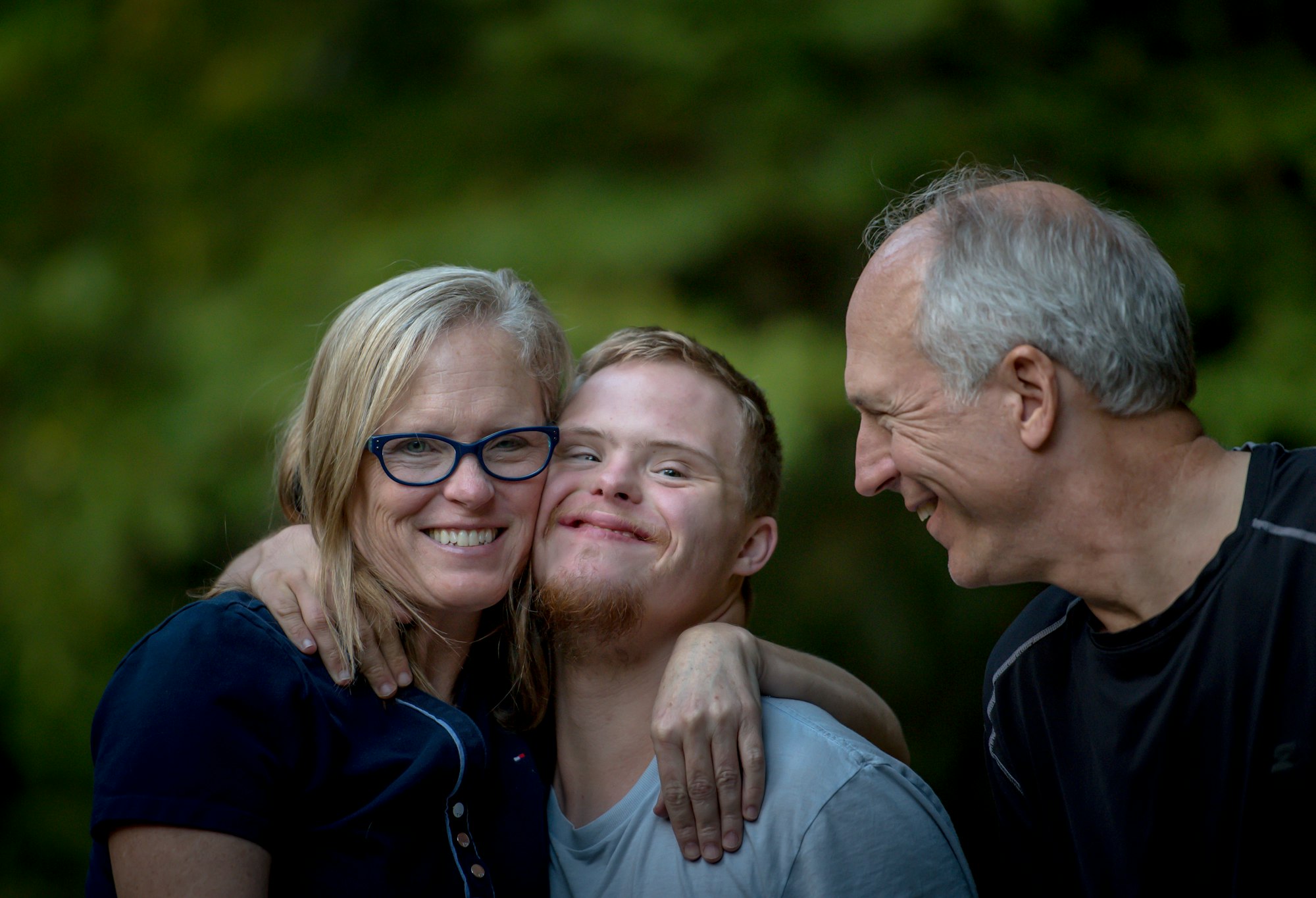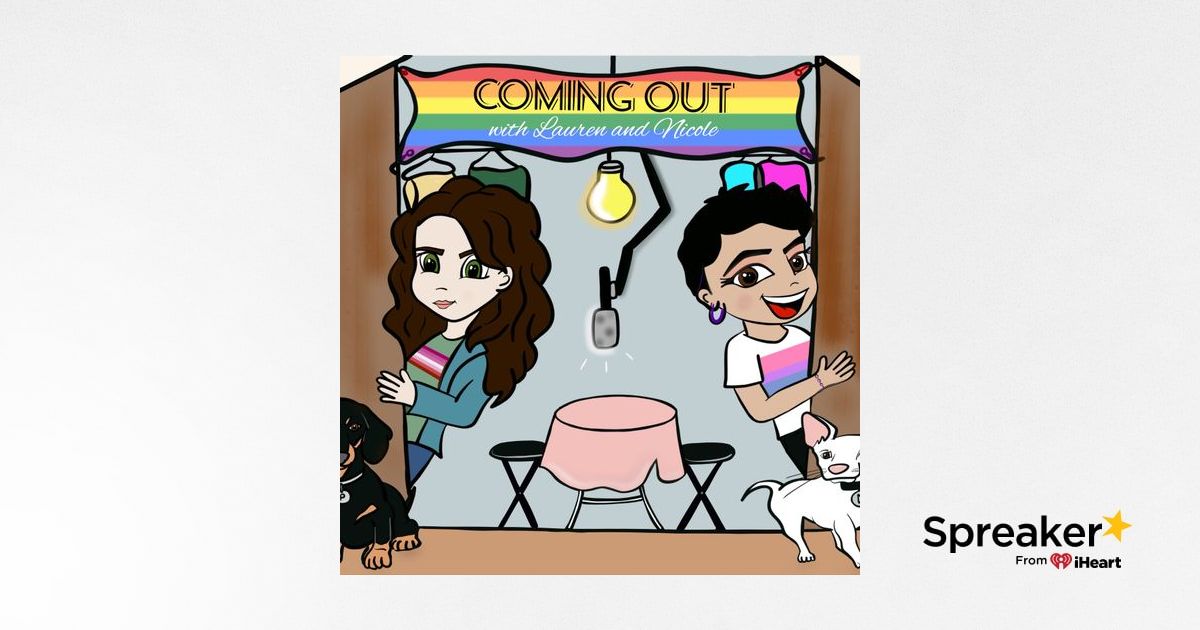Advice for Coming Out of the Closet - Ultimate LGBTQ Guide
Since coming out as LGBTQIA+ can be so mentally, emotionally, and physically draining, we have put together this comprehensive one-stop guide covering key tips and considerations for navigating any coming out situation. From friends, to family, to work, and everything in between.

Coming out is the act of revealing one's sexual orientation to their loved-ones and the world.
This can be an emotional process for everyone involved, which is why it’s important to practice self-love and self-acceptance before coming out. When it comes to friends and family, coming out can be especially difficult, but it's important to remember that there’s never a wrong time to come to terms with your identity and that you are never alone when you do.
Since coming out can be so mentally, emotionally, and physically draining, we have put together this comprehensive one-stop guide covering key tips and considerations for navigating any coming out situation. From friends, to family, to work, and everything in between, our guide to coming out of the closet hopes to make this next big step in your gay journey that much easier.
Coming out: A brief overview
What does 'coming out' even mean?
Many people in the LGBTQIA+ community wonder what the term ‘coming out’ means. Coming out is, simply put, revealing one's sexual or gender identity to others. It can be difficult for some people to come out because of the possibility of rejection and concerns about safety. But, it’s important to remember that everyone has their own unique story about coming to terms with their identity. Some might choose not to tell anyone at all while others might share their sexuality or gender identity with friends first before telling family members. Coming out can be an act of self-love and self-acceptance. Just remember, there’s no single right way to come out because everyone has different needs.
Do I have to come out of the closet?
Some people think that it’s their responsibility to share information about their sexual orientation with the world, while others are totally against the idea. Coming out of the closet can be mentally and physically exhausting, but some people find it liberating. You do not need to disclose your sexuality to anyone if you don't want to. For some people, passively coming out and not making it a 'thing' is more their style. For example, bringing a new partner to a family event, or talking about a date you're excited for with friends can both be “passive” ways to come out.
The idea of 'coming out' is often critiqued because it places pressure on LGBTQ+ people to announce their sexual and romantic inclinations to the world, the act of which, if you think about it, is very weird. That’s not to say that coming out is a concept we should simply abandon. If you're not in a position with your family or friends to suddenly bring home a same-sex partner without an adverse reaction, coming out can be a step to help everyone in your life slowly adjust their biases and misconceptions about the LGBTQ+ community. Ultimately, it's completely up to each individual what they feel comfortable sharing with other people in their life.
Why can coming out be difficult?
Why are people even in the closet? Well, the world can be an unforgiving place for those who don't conform to societal norms. People might have been bullied at school because of their sexuality, they might have lost jobs just for being gay, they might have faced discrimination from landlords for coming out, and so on. It takes enormous courage and strength for someone who’s been hiding something so personal from others to come forward and tell them. But, there is no right way to do it; and there’s only one person you definitely ought to trust enough to share such an important part of yourself with: You!
If you're not sure if your friends or family will accept you, then it might be best to find a new group of people that will support you through this process. You might also want to consider finding a therapist who specializes in working with members of the LGBTQ+ community.
Self-Discovery: Overcoming denial
Coming out to oneself is the first step in the process. One of the most courageous things you can do is to be honest to yourself about who you are and what you want out of life. But, denial is incredibly sneaky and can be hard to spot when it's happening. Coming out can be an extremely difficult process for someone who might be grappling with their sexual orientation or gender identity, but it's important to know that you're not alone and there are resources for support. Oftentimes, coming out to oneself goes against the way they were brought up. So, overcoming denial involves a great deal of patience and a journey toward unlearning problematic beliefs.
Tips for coming out to yourself
Coming out to yourself can be just as hard as coming out to the rest of the world. But fortunately, there are some steps you can take to make it easier. Here are five tips:
- Be honest about your feelings. If you feel like something isn't right, don't try to hide it from yourself. You'll only end up feeling worse if you do.
- Confront any biases or internalized homophobia/transphobia you might have. For example, if you think people will judge you because you're gay, then ask yourself why you assume people will automatically look down on you. Ask yourself how you feel about LGBTQ+ people. This could help you understand what is going on inside your head.
- Be gentle with yourself along the way.
- Be open to possibility. What’s wrong with a little self-exploration? It's not going to hurt anyone! And, who knows what new things you might learn about yourself along the way. If you never allow yourself to explore what you like, then you run the risk of being stuck in a state of confusion even longer.
Understand that identity is not static. People evolve and that's okay! Embrace the fact that one day you might feel more attracted to one gender, and then another one the next day. It's natural to search for certainty in your identity, but make sure that this doesn't come with the price of feeling in denial about your truths. Try to make peace with the idea that as you learn more about yourself, your wants, needs, and desires may change.


Coming Out to Friends: How to come out to your friends
Coming out to friends can also be difficult; but at the same time, it feels good to share who you are with people you care about. If you're ready to tell someone close to you, here are a few tips to help you out:
Tips for coming out to friends:
- Consider the space you're in. Do you have a solid support system? Do you feel mentally stable enough to begin the process of sharing yourself with your community?
- Consider creating a coming out plan. Is there a specific way you'd like to tell certain friends but not others? Remember that coming out can be a playful experience as well! Why not bake a batch of cupcakes that spell out “I’m Gay!” or write a poem about your journey?
- Prepare for their responses. What do your friends believe about LGBTQ+ people? Are you able to anticipate how they might take your news?
- Take care of yourself. This step is arguably the most important. If you start feeling overwhelmed, make sure to check in with yourself and tend to your needs first.
What if your friends aren’t supportive of LGBTQ+ people?
It can be heartbreaking to have friends that openly disapprove of the LGBTQ+ community. It's important to remember that this doesn't mean they hate all LGBTQ+ people; rather, they might just feel uncomfortable around certain individuals because they are misinformed. This discomfort could stem from fear, ignorance, religious beliefs, etc. When coming out to a friend like this, it's important to be prepared to initially receive a hurtful response. If you feel that the friendship is worth fighting for, try to be as patient and open as possible with this person. But, at the end of the day, it is important that you respect yourself enough to surround yourself with people who appreciate you for who you are.

Coming Out to Family: How to come out to your family
Coming out to family can be a scary experience, and coming out to certain family members can be scarier than others. Some people choose to come out gradually by telling only one or two family members at a time, while others prefer to tell everyone in one go. The best way is probably going to depend on how comfortable you are talking about these things with family, but if you're feeling nervous, start small. Tell someone who's close to you first, like an older sibling or cousin. If they don't react badly, then move on to another person.
Consider your individual circumstances
It can be difficult to know when and how to come out to family. First, consider the context of your family life. Are there any other LGBT+ people in your immediate circle? Do you have parents that might not understand what it means for their child to identify as gay/lesbian/bisexual/transgender? Is this something you want to share with them now, or would you rather wait until later?
In order to have a successful coming out, it is important to prepare your family for what they can expect and to establish some personal boundaries to protect yourself. Examples of personal boundaries might include: refusing to argue about whether this is a phase, choosing not to answer invasive questions, or asking family members to take 24 hours to process your news before reacting with questions.
Tips for coming out to family:
- Be clear that it's not a choice or a phase.
- Try not to feel like it's some huge secret or lie you’ve been withholding.
- Be patient with them and reassure them when they ask questions about what you mean.
- Stay calm and collected— try not to get too angry or emotional.
- Remember that this is a good thing; you're finally comfortable in your own skin and with who you are, and it's time to celebrate that with your loved ones.

Coming Out at Work: What to consider when coming out at work
Some people decide to come out in the workplace for several different reasons. They might feel that it’s important for their coworkers to know about their orientation so that they can be treated fairly in the office or feel closer to their work-friends. There are no hard-and-fast rules about coming out in a professional sense. Some people will never come out at work, others will right away; some might take weeks, months, or even years before they feel comfortable doing so. Whatever the case, coming out is an intensely personal decision that should be made by you, not your employer.
Tips for coming out at work:
- Learn about your company's anti-discrimination policies. If there are no such policies, then you might need to speak with HR or ask if you can transfer into another department where there are more protections against discrimination.
- Consider how much you want to share. You don't have to tell everyone you work with, but you might consider telling one coworker that you trust and who can help advocate for your needs in the workplace. This person could also help you find other allies in your work community.
- Ask for support from friends and family. Let your friends or family know that you are struggling with this issue so they will be able to provide emotional support when needed. They might also be able to give you advice on what steps you should take next.
- Ask yourself who you want/need to tell? Consider who you want to share this piece of yourself with. Work friends can be fierce allies and telling them can create a more validating work environment for you. But, you might not want everyone in the office caught up in your personal business, so it might be helpful to make a list of important people to talk to.

Staying Safe: Advice on how to stay safe when coming out.
How might coming out affect access to your basic needs like shelter? Consider your care-provider's opinions on the LGBTQ+ community and determine whether or not you can come out safely. You might want to wait until you're 18 and have a job before telling your guardians about your identity.
Coming out to new people. There are hateful people in the world. You might want to consider who you disclose your identity to as it might change how they treat you (personally, professionally, etc.)
The importance of friends. If you can find a supporting group or community while you undergo the process of coming out, you might have a much easier time. Having a set of affirming and supportive people behind you can give you the strength and courage it take to come out to the world. Having a support network also protects you in the event that your family and larger community ostracize you.
Navigating family: If you're concerned about how your family will respond, try identifying an ally in your immediate or extended family. Whether this is an aunt, cousin, or external parental figure, finding one person who you can rely on can provide an added layer of security just in case your family reacts poorly.
Finding support: Familiarize yourself with local and virtual support services for LGBTQ+ individuals.
Find Community and Allies: Ways to find allies and support networks if needed.
Seek out LGBTQ+ friends and networks on social media! There are many ways to find LGBTQ+ friends and networks on social media. One way is to search for LGBTQ-related hashtags on Instagram, Twitter, and Facebook. Another way is to look up LGBTQ+ influencers on YouTube and follow their social media accounts.
Use the internet to find LGBTQ+ centers in your area.
You can search for LGBTQ+ centers in your area by using a tool like Google Maps. There are many LGBTQ+ centers in the United States. One of the largest is The Los Angeles LGBTQ Center in Los Angeles, which has been serving the LGBTQ+ community since 1969.
Navigate social media: How to handle hate comments
People might make homophobic and transphobic comments because you don't fit the norm, and those hurtful words could eat away at your confidence. It's important to keep your head up and remember that those people are just misinformed. You have a right to be yourself!
There are many ways to handle homophobic comments. You can ignore it, you can confront them, or you can report them. Ignoring the comment is probably the easiest way to handle it. Confronting them might be difficult depending on the situation and who they are. Reporting their comment and blocking them is always a good option to protect your peace.
15 Fun Ideas for coming out to friends or family
To finish this article, here are some fun and creative ways that you can come out to the people in your life.
- Make Rice Krispies treats with rainbow sprinkles. While you're handing them out to loved ones, say, "Just FYI, I'm super bisexual."
- Bake a rainbow cake and frost with plain icing. When you cut into the cake and a rainbow appears, give everyone a knowing look.
- Write "flaming homo" on a cookie cake. Set it on fire.
- Fill a box with rainbow balloons and deliver it to your best friend.
- Change your ringtone to "I'm Comin' Out" by Diana Ross.
- Mail a Hogwarts-Style letter addressed to your parents house and label it in big rainbow letters "The Gay Society" and inside write in big letters WELCOME.
- Play a game of charades with your family—act it out when it's your turn.
- Tell a corny knock-knock joke: "Who's there?" "Me" "Me, who?" – "Me, coming out to you right now"
- Spell it out during a game of Scrabble.
- Throw a pizza party. Open a box of pizza, take a slice and yell "This pizza is for gay people only!"
- Make a shirt that says "I'm with gay," and have the arrow point to your face.
- Offer someone a few skittles and whisper: "Have you tasted the rainbow? I have."
- Go on a hike with your friends and shout it from an actual mountain top.
- Come out of a closet, literally.
- Wait for halloween and go to a costume party dressed as yourself. When people say, "What are you?" you reply, "I'm a gay person." When they say, "Oh, but you look the same as you always look," wink very slowly.
Resources to help you right now:
1. Podcasts on Coming Out Stories & Acceptance





2. LGBTQIA+ Must-Read Books on Coming Out & Pride



3. Helpful Links & Other Resources














